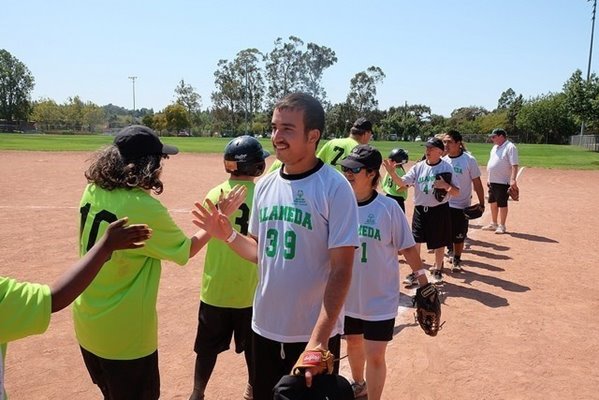The thrill of competition. It entertains us, it unites us, and since the 1960s, millions of Special Olympics athletes have been given the opportunity to engage in competition all over the globe. Getting thousands of athletes to hundreds of competitions throughout the year can be challenging, but these operational hurdles are cleared with help from donors, volunteers and dedicated staff members.
What began in 1962 as a day camp for people with intellectual disabilities grew, by 1968, into the first International Special Olympics Games. That summer, 1,000 athletes from 26 states and Canada competed at Chicago's Soldier Field. Today, with chapters in all 50 states and more than 150 countries, the Special Olympics has grown into one of the largest sports and volunteer organizations in the world, hosting regular competitions for more than 4.5 million athletes worldwide.

Big-Time Nonprofit Financial Management
Today, the Special Olympics and its regional organizations are host to hundreds of competitions throughout the year, made possible with the help of donations from both individuals and corporate sponsors. Donations allow Special Olympics athletes to compete at no cost to the athletes or their families. And according to Ilisa Kessler, COO of Special Olympics Northern California, 91 cents of every dollar raised goes to program services. These funds help pay for everything from equipment and uniforms, to the transportation of athletes.
“We have to get athletes who are coming from all over Northern California to one central location for competition,” Kessler says. “All of that is getting funded through charitable donations.”
While regional competitions take place throughout the year, the chapter is also involved in several national and international competitions. Plans for attending these competitions must be made years in advance, but by planning ahead and budgeting accordingly, Special Olympics Northern California is able to ensure its athletes can focus solely on competing. “We know what years each of those types of competitions are going to be happening,” Kessler says. “We budget out for it just like any other business, knowing when there's going to be a bump in expenditure, we make sure we have that in the budget so we're prepared.”
A Key Ally: Volunteers
The organization would be hard-pressed to fulfill its mission without the volunteers who donate their time and expertise. Special Olympics Northern California alone relies on more than 20,000 volunteers to assist its 32 full-time employees in hosting nearly 200 annual competitions. Volunteers help with everything from fundraising and office work, to coaching and escorting athletes to the starting line. According to Kessler, volunteerism is crucial to the organization. “It's how we function,” Kessler says. “We can't serve over 19,000 athletes without volunteers.”
Finding such a large number of volunteers is made possible through partnerships with organizations such as the Kiwanis Club, Rotary Club, Knights of Columbus and the National Charity League. Many times, those who have volunteered in the past reach out to the organization wanting to volunteer again, Kessler says.
Special Olympics Northern California has also found many volunteers through educational partnerships. Since 2001, it has been partnering with schools throughout Northern California with its Schools Partnerships Program. The program was launched with the goal of providing athletic opportunities to students with intellectual disabilities, but students without disabilities quickly got involved, volunteering for tasks like coaching and refereeing — and even teaming up with disabled students through the Unified Sports program.
Off the court, Unified Sports programs began to foster inclusion in the hallways of partner schools, too. Teachers began seeing more respect between students, and even a reduction in bullying. “You now have people who consider each other teammates, that before, walked through hallways of schools not even recognizing one another, but now they're high-fiving each other and joking around,” Kessler says. “The power of change through sport is remarkable.”
It's a side effect of the organization's mission that Kessler and her colleagues would struggle to maintain without the financial relief (and operational expertise) provided by the organization's deep bench of volunteers.
See how the PEX Platform and prepaid cards enable volunteer spending while ensuring compliance.

Ryan Lowery is a writer and independent journalist whose work has been published by The Motley Fool, AOL’s DailyFinance, Seeking Alpha, and others.
Stay up to date on the latest PEX news!
Thank you, you're now subscribed!
Opinions, advice, services, or other information or content expressed or contributed here by customers, users, or others, are those of the respective author(s) or contributor(s) and do not necessarily state or reflect those of The Bancorp Bank, N.A. (“Bank”). Bank is not responsible for the accuracy of any content provided by author(s) or contributor(s).




